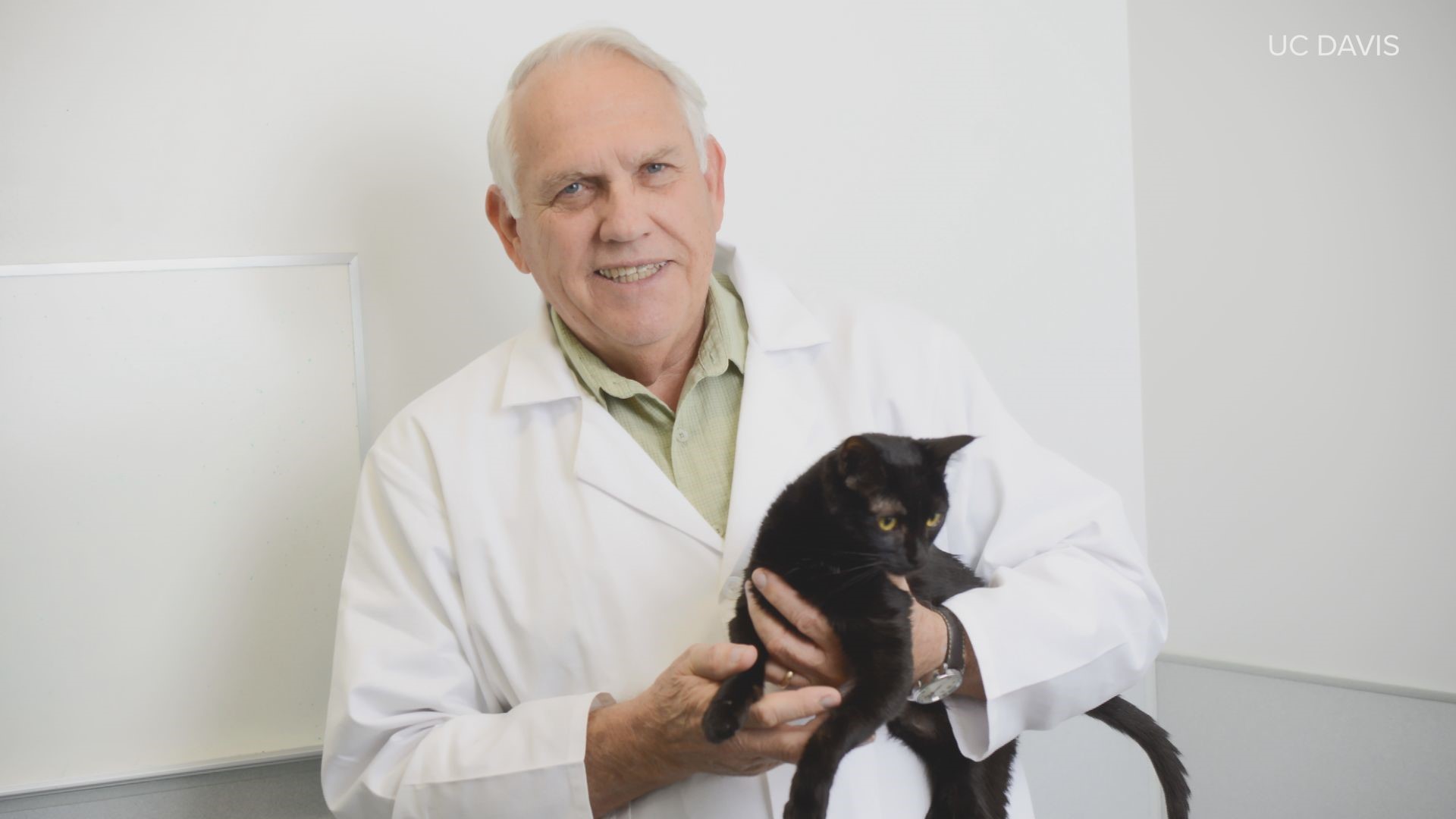DAVIS, Calif. — Back when the shelves at grocery stores were still full, all businesses were still open and the coronavirus hadn't turned into a pandemic, ABC10 met with Dr. Niels Pedersen to talk about drugs.
Pedersen, after 50 years of studying a different kind of coronavirus in cats, came up with an anti-viral drug used to effectively treat it two years ago. Now that drug is being used to treat and cure cats of a different kind of coronavirus.
In an interview with ABC10 last month, Pedersen said he felt as though his research and legwork was being ignored when it comes to studying the virus in humans.
Not much has changed since.
"The people on the human side that are working with the coronavirus have paid absolutely no attention, or hardly any attention, to that whole huge body of work that veterinarians have done for decades," Pedersen said.
He says many of the cat families he's helped over the years have been reaching out over the past few weeks, all with the same question.
"Their frustration is, if I can be done in cats, why can't it be done in humans?" he said.
And while he doesn't know how humans could respond to the drug that's been upwards to 90% effective in cats, Pedersen said the research is worth looking into.
"It should receive more attention," he said. "We could work together and learn."
Still, he said he's inspired knowing there have already been researchers on every level mobilized across the world, working on coming up with a solution for humans.
Last month, UC Davis also launched two clinical trials for hospitalized patients with the coronavirus, where they will be testing the safety and effectiveness of two different drugs.
"I know it's terrible and there will be terrible losses, but on the other hand, it's kind of an exciting time to see how a country and all of it's people can respond," Pedersen said. "I mean it is amazing on all levels."
READ MORE:
Coronavirus Background
According to the CDC, coronavirus (COVID-19) is a family of viruses that is spreadable from person to person. Coronavirus is believed to have been first detected in a seafood market in Wuhan, China, in December 2019. If someone is sick with coronavirus, the symptoms they may show include mild to severe respiratory illness, cough, and difficulty breathing.
Currently, there is no vaccine; however, the CDC suggests the following precautions, along with any other respiratory illness:
- Avoid close contact with people who are sick.
- Avoid touching your eyes, nose, and mouth.
- Stay home when you are sick.
- Cover your cough or sneeze with a tissue, then throw the tissue in the trash.
- Clean and disinfect frequently touched objects and surfaces using a regular household cleaning spray or wipe.
- Wash your hands with soap and water for a minimum of 20 seconds.
WHY HEALTH OFFICIALS ARE SO CONCERNED
Some people have compared the low overall death toll to the flu's high annual death toll in the United States as a reason not to be concerned about COVID-19, however, doctors and health officials are concerned for three main reasons:
- Some people have built up immunity to the flu, but few have immunity to COVID-19 version of coronavirus.
- Both the flu and COVID-19 are spread by droplets, but COVID-19 might be spread in the air. Scientists are researching exactly how COVID-19 spreads.
Follow the conversation on Facebook with Lena Howland.
FOR THE LATEST CORONAVIRUS NEWS,
DOWNLOAD THE ABC10 APP:
►Stay In the Know! Sign up now for ABC10's Daily Blend Newsletter



